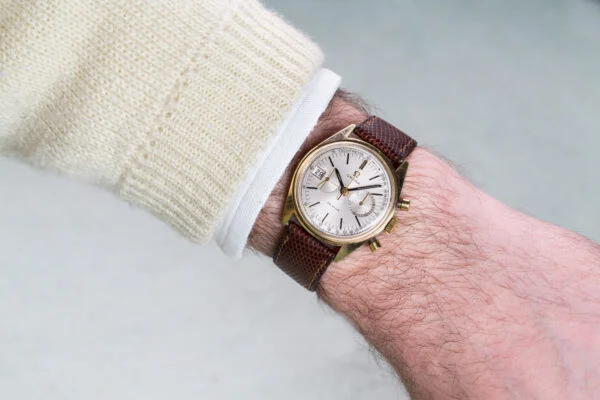
A mechanical watch is more than just a timepiece, it’s a miniature engineering marvel, a work of art you wear on your wrist. Unlike their quartz counterparts, mechanical watches require special attention and care to ensure they function accurately and maintain their value over time. This intricate mechanism requires regular maintenance to keep it running smoothly. Two main types,
- Manual wind – These watches must be wound regularly by hand.
- Automatic – These watches wind themselves through the natural movement of your wrist.
Proper mechanical watch care is essential for longevity and performance regardless of the type.
Daily care and handling
Winding your watch
Establish a daily routine of winding your watch for manual wind watches. This ensures consistent power and accurate timekeeping. Wind the crown slowly and stop when you feel resistance to avoid overwinding. For automatic watches, if you wear your watch daily, it should maintain adequate power. If you don’t wear it regularly, consider using a watch winder to keep it running and accurate.
Temperature considerations
Extreme temperatures affect the lubricants in your watch and impact its performance. Avoid exposing your watch to sudden temperature changes or leaving it in hot or cold environments for extended periods.

Water resistance
Even if your watch is rated as water-resistant, it’s best to minimize its exposure to water. If you get your watch wet, dry it thoroughly, paying particular attention to the crown and pushers. For diving watches, make sure to rinse them with fresh water after exposure to saltwater.
Professional servicing
Regular professional servicing is crucial for maintaining your mechanical watch. Most experts recommend servicing every 3-5 years but consult your watch’s manual for specific guidance. During a service, a watchmaker will:
- Disassemble the watch
- Clean all components
- Replace worn parts
- Lubricate the movement
- Reassemble and test the watch
Professional servicing ensures your watch continues to function accurately and prevents wear and tear from developing into more severe issues. If you’re looking for reputable watchmakers, navigate to these guyswho specialise in mechanical watch care and servicing.
Storing your mechanical watch
Proper storage is an often overlooked aspect of mechanical watch care. When you’re not wearing your watch:
- A cool, dry place is best.
- Use a watch box or case to protect it from dust and potential impacts.
- If storing for an extended period, consider using silica gel packets to absorb moisture.
- For automatic watches, use a watch winder to keep the movement active, or wind it regularly even when not used.
Understanding and adjusting accuracy
Mechanical watches are engineering marvels but must be more accurate than quartz watches. The movement of a mechanical watch changes every day. To manage this:
- Monitor your watch’s accuracy over time. You use a website or app to track its performance against atomic time.
- If you notice a significant inaccuracy, have your watch regulated by a professional. They adjust the movement to improve its timekeeping.
- Remember that temperature, position, and how often you wear the watch affect accuracy.
Maintaining your mechanical watch properly is a rewarding experience for any watch collector. This strengthens your bond with the watch and makes it a long-term companion.




